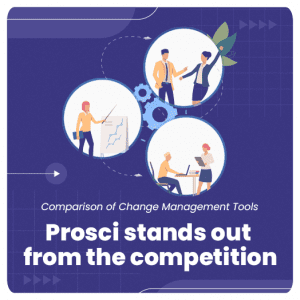

Many think culture is a deep and complex topic. It helps to break it down into understandable parts.
The first lesson about meaningful culture change is that it starts with you, whether you are a leader, change agent, consultant, or all of the above. When reflecting on culture, many top leaders think about how their team members must change. Individual contributors or other managers may think about how their boss or senior leaders must change. The reality is that intentional culture change can be sparked at any level by one person committing to build relationships, learn, and improve with others. It’s a better path than the frustration and stress associated with judging others and trying to make them change.
Attempting to understand and evolve culture is not for the faint of heart. Culture can be the unstoppable force to maximize your organization’s potential, or it can crush your soul. What mindset and knowledge do you need to understand one of the most powerful forces in organizations and translate that knowledge into meaningful action?
Commit to a Learning Mindset
“Everything someone says and does make sense to them. If you don’t understand it, you have some learning to do.”
–Andy Stanley
Culture is like a puzzle you never completely solve. You may put the pieces together and know more, but there are always parts of the puzzle you don’t even know exist. A commitment to learning is necessary on two significant fronts.
- Learn about culture – what it is, how it is created, and how it evolves: The more I understand about the culture, the more I realize how much I still don’t understand. It’s essential to turn away from superficial or exotic solutions and ground yourself in fundamental truths about what culture is, how it is created, and how it evolves. We need frames to help us understand and think about culture so we can cut through the confusion.
Consider the following resources:- Sign-up for the posts at ConstructiveCulture.com and CultureUniversity.com. Pay special attention to the top posts in the right margin of each blog.
- Read Creating Constructive Cultures by Janet Szumal, Ph.D. with Robert Cooke, Ph.D.
- Learn from your inner dialogue and remain constructive: We grow up trapped in the expectations of others (parents, friends, classmates, etc.) and then we transition to the working world where the expectations from peers, bosses, and others often close tighter around us. We’re used to trying to fit in as we’re bombarded by cultural norms. One path to understanding culture is to understand the culture battlefield in our mind. Eckart Tolle said, “There is nothing that shows up that is not teaching you something.” What’s driving your thinking and emotions? Where do you sense yourself jumping to a conclusion about others or listening to the self-critical voice in your head? By definition, culture is a group thing, but we can start understanding it by understanding ourselves and the beliefs we hold that others may share.If you change your mindset, it can reduce judgmental inclinations as curiosity takes over with a consistent effort to learn. It is possible to reframe the world to make sense of it as you use the lens of culture. Courage, disciplined action, and the love of others are all necessary to make the most of what you learn.
Courage
“Without courage, we cannot practice any other virtue with consistency. We can’t be kind, true, merciful, generous, or honest.”
–Maya Angelou
A growing appreciation and understanding of culture is of little use without translating it into action. As your knowledge about culture grows, it’s like you have your hand on the rudder of a boat and can have a magnified impact on results.
We learn who we are and what we are capable of through the courage to take the initiative. Courage with culture-related change takes many forms – asking questions, listening, reflecting, involving others, raising a concern, asking for feedback, empowering others, problem-solving, and taking action or not.
The culture change agent will proactively make something happen when everyone else is knowingly or unknowingly preserving the status quo. There is an inherent risk in cutting against the cultural grain, and you will be judged or even punished. It’s essential to be intentional as you reflect, learn, and take action in groups instead of trying to be a maverick.
Persistent and Disciplined Action
“We keep moving forward, opening new doors, and doing new things, because we’re curious and curiosity keeps leading us down new paths.”
–Walt Disney
Understand the inevitable culture change grind and be comfortable being uncomfortable. Expect the pushback and roadblocks. You will likely feel like Sisyphus rolling a boulder uphill only to see it roll back down the hill time and time again.
Work through the frustration that will inevitably come by trying anything new and significant. Culture can play out in irrational and unreasonable ways. Don’t expect constructive behavior and approaches to be rewarded. As you encounter obstacles, learn from the inner debate in your mind as you think through approaches to build relationships and take constructive action. You will be tempted to vent your frustration and “go negative,” but doing so rarely pays off. Deliberate, consistent, and constructive action with others is far more likely to be effective.
You need rock-solid perseverance and tenacity grounded in thoughtful action with groups. It is possible to design change efforts to guarantee learning through disciplined cycles of planning, improvement, collective reflection, and refinement of plans.
The Love of Others
The most important part of this culture change agent formula is not the commitment to learning, the courage to take the initiative, or disciplined and persistent action. It’s summed up in a famous quote from Dr. Martin Luther King, “life’s most persistent and urgent question is: what are you doing for others?”
This culture change lesson is about “you,” but the motivation and relentless internal drive must be to help others. The belief in yourself will carry you forward as you see the possibilities to make a difference with others.
“The best way to find yourself is to lose yourself in the service of others.”
–Mahatma Ghandi
